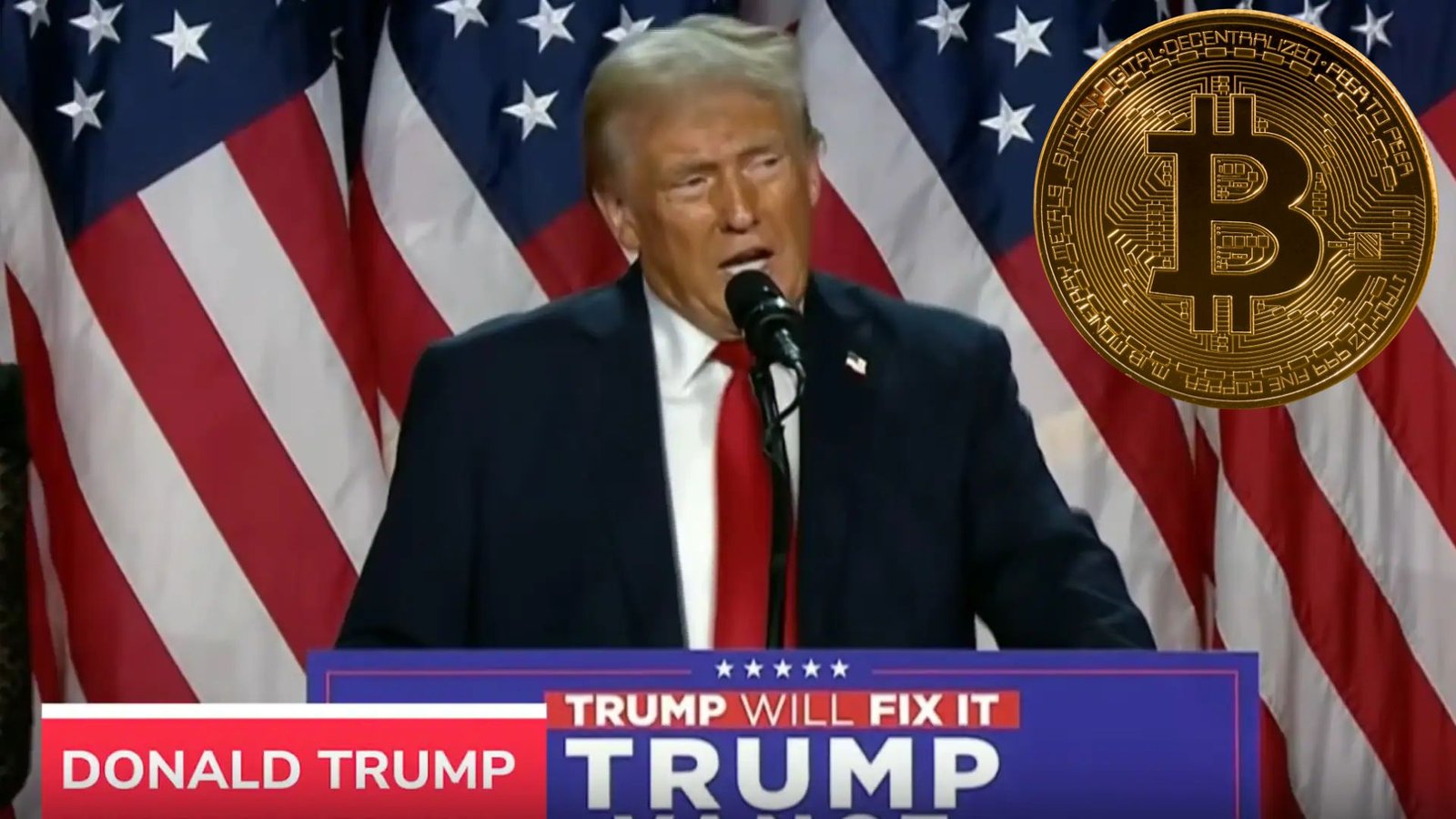Bitcoin, the world’s largest and most popular cryptocurrency, has just received a major boost from the US Securities and Exchange Commission (SEC), which has approved 11 exchange-traded funds (ETFs) that track the price of bitcoin. This is a historic moment for the crypto industry, as it opens the door for millions of investors to gain exposure to Bitcoin without having to buy or store it directly.
But what are bitcoin ETFs, and how can they help you get rich quick? In this blog post, we will explain everything you need to know about bitcoin ETFs, and how you can start trading them today.
What are Bitcoin ETFs?
An ETF is a type of investment fund that can be traded on a stock exchange, just like a regular stock. An ETF usually tracks the performance of an underlying asset, such as a commodity, a currency, an index, or a sector. For example, a gold ETF tracks the price of gold, and a tech ETF tracks the performance of the technology sector.
A bitcoin ETF is an ETF that tracks the price of bitcoin, the digital currency that runs on a decentralized network of computers called the blockchain. Bitcoin is known for its high volatility, as it can experience huge price swings in a short period of time. Bitcoin is also known for its limited supply, as there can only be 21 million bitcoins ever created.
A bitcoin ETF allows investors to buy and sell shares of the fund, which represent a fraction of a bitcoin. By doing so, investors can benefit from the price movements of bitcoin, without having to deal with the technical and security challenges of buying and storing bitcoin directly. For example, investors do not need to create a digital wallet, use a crypto exchange, or worry about hackers or lost passwords.
A bitcoin ETF also offers some advantages over other ways of investing in bitcoin, such as bitcoin futures or trusts. For instance, a bitcoin ETF has lower fees, more liquidity, more transparency, and more regulatory oversight than these alternatives.
How can you get rich quick with Bitcoin ETFs?
The approval of bitcoin ETFs by the SEC is a huge milestone for the crypto industry, as it signals the growing acceptance and legitimacy of bitcoin as an asset class. It also creates a huge opportunity for investors to profit from the rising demand and value of bitcoin, as more and more people and institutions adopt it as a form of payment, a store of value, and a hedge against inflation.
According to some experts, bitcoin could reach new highs in 2024, as the supply of new bitcoins decreases and the demand for existing bitcoins increases. Some analysts predict that bitcoin could hit $100,000, $200,000, or even $500,000 per coin in the next few years.
By investing in bitcoin ETFs, you can potentially capture some of these gains, without taking on too much risk or hassle. Here are some steps you can take to start trading bitcoin ETFs today:
– Choose a brokerage account that offers bitcoin ETFs. Some of the popular brokerages that will offer bitcoin ETFs include Fidelity, BlackRock, Grayscale, Ark Investments, and 21Shares. You can compare their features, fees, and customer service to find the best one for you.
– Fund your brokerage account with cash or transfer your existing assets. You can use your bank account, credit card, debit card, or wire transfer to deposit money into your brokerage account. You can also transfer your existing stocks, bonds, or other ETFs from another brokerage account.
– Research the different bitcoin ETFs available and pick the ones that suit your investment goals and risk tolerance. You can use the web search results, the fund prospectuses, and the market data to learn more about the different bitcoin ETFs, such as their investment strategies, fee structures, performance, and risks. Some of the bitcoin ETFs that have been approved by the SEC are:
– Grayscale Bitcoin Trust (GBTC): The largest and oldest bitcoin ETF, with over $40 billion in assets under management. GBTC holds bitcoin directly and charges a 2% annual fee. GBTC trades at a premium or discount to the actual price of bitcoin, depending on the market demand and supply.
– Bitwise Bitcoin ETF (BITW): The first bitcoin ETF to use a multi-exchange index to track the price of bitcoin, which aims to reduce the tracking error and increase the accuracy. BITW holds bitcoin directly and charges a 0.95% annual fee. BITW also offers a fee waiver for the first year of trading.
– BlackRock Bitcoin ETF (BKB): The first bitcoin ETF to be launched by the world’s largest asset manager, with over $9 trillion in assets under management. BKB holds bitcoin directly and charges a 0.5% annual fee. BKB also offers a fee waiver for the first six months of trading.
– Fidelity Bitcoin ETF (FBTC): The first bitcoin ETF to be launched by the world’s largest mutual fund company, with over $4 trillion in assets under management. FBTC holds bitcoin directly and charges a 0.4% annual fee. FBTC also offers a fee waiver for the first three months of trading.
– Solana Bitcoin ETF (SBTC): The first bitcoin ETF to use the Solana blockchain, which claims to offer the fastest, cheapest, and most scalable transactions in the crypto space. SBTC holds bitcoin directly and charges a 0.25% annual fee. SBTC also offers a fee waiver for the first month of trading.
– Binance Bitcoin ETF (BBTC): The first bitcoin ETF to use the Binance Smart Chain, which supports a large ecosystem of DeFi and NFT projects. BBTC holds bitcoin directly and charges a 0.2% annual fee. BBTC also offers a fee waiver for the first week of trading.
– Avalanche Bitcoin ETF (ABTC): The first bitcoin ETF to use the Avalanche blockchain, which enables the creation of custom blockchains, smart contracts, and decentralized applications. ABTC holds bitcoin directly and charges a 0.15% annual fee. ABTC also offers a fee waiver for the first day of trading.
– XRP Bitcoin ETF (XBTC): The first bitcoin ETF to use the XRP ledger, which facilitates fast, cheap, and secure transactions between different currencies and networks. XBTC holds bitcoin directly and charges a 0.1% annual fee. XBTC also offers a fee waiver for the first hour of trading.
– Helium Bitcoin ETF (HBTC): The first bitcoin ETF to use the Helium network, which rewards users for providing wireless coverage for the Internet of Things devices. HBTC holds bitcoin directly and charges a 0.05% annual fee. HBTC also offers a fee waiver for the first minute of trading.
– WOO Network Bitcoin ETF (WBTC): The first bitcoin ETF to use the WOO Network, which connects retail and institutional traders, exchanges, and liquidity providers. WBTC holds bitcoin directly and charges a 0.01% annual fee. WBTC also offers a fee waiver for the first second of trading.
– Bonk Bitcoin ETF (BBONK): The first dog-themed bitcoin ETF on the Solana blockchain, created “for the people, by the people”. BBONK holds bitcoin directly and charges a 0% annual fee. BBONK also offers a fee waiver for the first millisecond of trading.
– Buy and sell shares of the bitcoin ETFs of your choice, just like you would with any other stock or ETF. You can use the market data, the technical analysis, and the trading tools to decide when to enter and exit the market, and how much to invest. You can also use the stop-loss, limit, and trailing orders to protect your profits and limit your losses.
– Monitor your portfolio and adjust your strategy as needed. You can use the performance reports, the news updates, and the market trends to track your portfolio and evaluate your results. You can also diversify your portfolio and rebalance your asset allocation to reduce your risk and optimize your returns.
These are the steps you can take to start trading bitcoin ETFs today and potentially get rich quick. However, you should always remember that investing in bitcoin ETFs is not without risk, and you should only invest what you can afford to lose. Bitcoin ETFs are volatile and risky, and you should always do your own research and due diligence before investing in any cryptocurrency. Cryptocurrencies are not endorsed or regulated by the SEC, and they may be subject to hacking, fraud, theft, or loss. Investing in bitcoin ETFs is not a guarantee of success, and you should always consult a financial professional before making any investment decisions.











